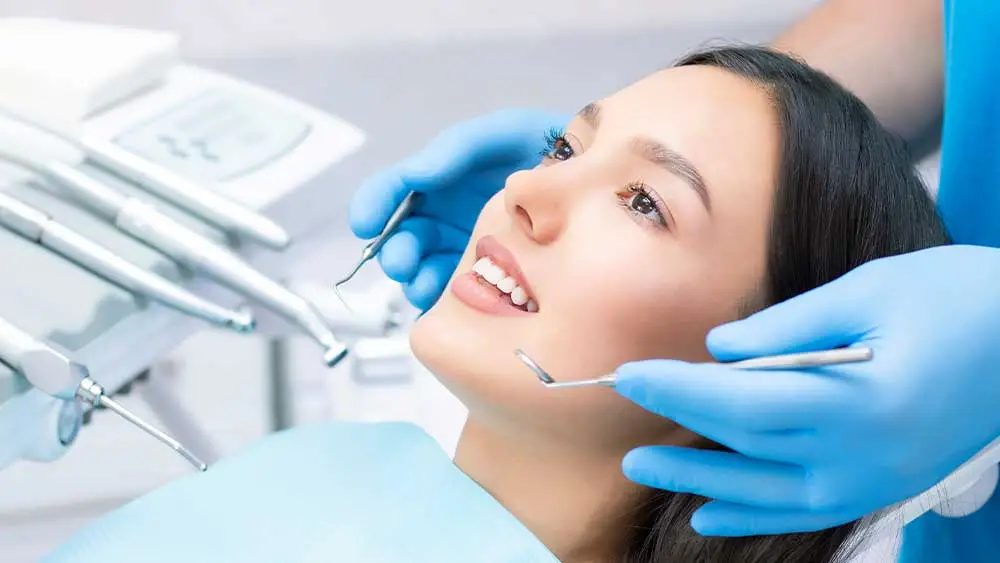
Oral, Dental and Maxillofacial Surgery
Oral, Dental and Maxillofacial Surgery is a branch of medicine that includes surgical interventions and treatments in the mouth, teeth, jaw and face. Oral and maxillofacial surgery includes tooth extraction, implant surgery, dental implants, jaw fractures, gum surgery, removal of oral tumors and similar procedures. It also includes the treatment of complications after tooth extraction.
Maxillofacial surgery deals with the surgical treatment of jaw fractures, problems with jaw joints, jaw anomalies, oral tumors and similar jaw area problems.
Oral and maxillofacial surgery, a sub-branch of oral, facial and maxillofacial surgery, also includes aesthetic and reconstructive surgery of this region. This field treats facial deformities or injuries using various plastic surgery techniques.
Dental implants are artificial tooth roots used to replace missing teeth. Specialists in Oral, Dental and Maxillofacial Surgery surgically place dental implants and have experience in this field.
Oral pathology deals with the diagnosis and treatment of diseases related to the mouth and teeth. The examination and diagnosis of intraoral lesions is part of this field.
As part of plastic surgery of the mouth, face and jaw area, Oral, Dental and Maxillofacial surgeons may use plastic surgery techniques to correct aesthetic problems of the face.
Traumas in the mouth, teeth and jaw area are treated surgically by Oral, Dental and Maxillofacial Surgeons. This can include accidental jaw fractures or facial injuries.
Oral, dental and maxillofacial surgeons collaborate with other medical fields, such as dentists, orthodontists, otolaryngologists and plastic surgeons, because these fields are often interrelated.
Oral and maxillofacial surgeons are medical professionals with training and experience in this field. These surgical specialists perform surgical and non-surgical procedures to maintain or improve the health of patients’ mouth, teeth and jaws.
Oral, Dental and Maxillofacial Surgery specialists work to maintain and improve patients’ oral, dental and maxillofacial health and solve aesthetic problems. Treatment needs may vary depending on the patient condition and the specific problem. Therefore, an ADCC specialist creates the individual treatment plan according to the patient’s requirements.
What are Oral and Maxillofacial Treatments?
Oral, dental and maxillofacial procedures include treatments and interventions in this area. The aim of these applications is to protect oral, dental and jaw health, treat diseases, correct aesthetic problems and solve functional problems. Here are examples of oral, dental and jaw applications:
Regular dental examinations and cleaning procedures that form the basis of oral and dental health. Dental fillings are used to treat tooth decay. Usually composite resin or amalgam materials are used.
When teeth need to be extracted, this is done by a dentist. Care after tooth extraction is also important.
It is a treatment applied in cases where the pulp tissue inside the tooth is inflamed. The inside of the tooth is cleaned, disinfected and filled.
Artificial tooth roots are used to replace missing teeth. Implants are placed in the jawbone and artificial teeth or dental bridges are attached.
Braces and appliances are used to correct crowding and treat jaw irregularities.
Dentures to replace missing teeth can be total dentures (replacing all previous teeth) or partial dentures (replacing some missing teeth).
- Improving the aesthetic appearance of teeth with teeth whitening, porcelain veneers, laminated veneers and similar procedures.
- Surgical procedures such as removal of oral tumors, gum surgery, facial and maxillofacial surgery.
- Treatment of gum diseases, procedures such as gum surgery and gum grafts.
- Specialized dental practices and treatments for children.
- Diagnosis and treatment of intraoral lesions. Biopsy and pathological examination are performed in this area.
- Treatment of jaw joint problems and TMJ pain.
- Devices such as mouth guards, jaw guards and night plates are used to protect teeth and treat jaw problems.
- Diagnosis and treatment of oral cancers.
These appliances are used in a variety of situations to maintain and improve oral, dental and jaw health. Which app is needed depends on the specific condition and needs of the patient. Therefore, a dentist or oral, dental and maxillofacial surgeon will create a treatment plan that suits the patient’s needs.



